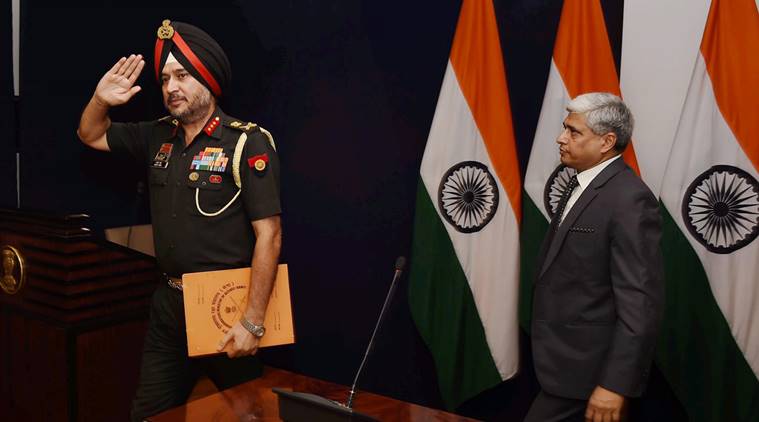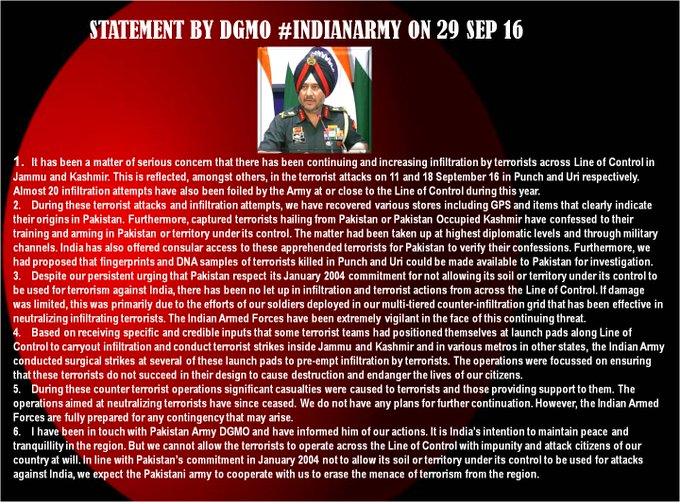NEW DELHI: Taking the offensive right into the heart of Pakistan, India on Monday reviewed the Indus Water Treaty+ to explore possible ways to use its share of water of rivers flowing into Pakistan.
"Blood and water cannot flow simultaneously+" Prime Minister Narendra Modi said on Monday as he chaired a review meeting of 56-year-old Indus Water Treaty during which it was decided that India will "exploit to the maximum" the water of Pakistan-controlled rivers, including Jhelum, as per the water-sharing pact. The review meeting on the Indus Water Treaty came as India weighed its options to hit back at Pakistan+ in the aftermath of the Uri attack+ that left 18 soldiers dead, triggering demands that the government scrap the water distribution pact to mount pressure on that country.
Here are the three important ways New Delhi plans to use provisions in the Indus Water Treaty to turn the heat on Islamabad:
1. Meetings of 'Permanent Indus Commission' suspended
Official sources said the Indus commissioners will meet only in the absence of terrorism. These commissioners meet about twice a year and have met every year since the treaty was signed, even during the 1965, 1971 and Kargil wars.
Implication
Pakistan at a dead end. Here's how:
* Treaty provides for three-stage grievance redress. Disputes first raised at meetings (two a year). If unresolved, dispute is referred to neutral expert World Bank appoints. If that too fails, sides can apply for arbitration by the UN's court of arbitration
* If the first stage of dispute redressal is suspended, the other two steps cannot kick in. This leads to a dead end for Pakistan
2. Restart Tulbul project
India unilaterally suspended the Tulbul project (Islamabad calls it Wullar Barrage) in 1987 after Pakistan objected. The project was part of the composite dialogue, but the dialogue itself was junked in its earlier form by the Manmohan Singh government. The decision to review the suspension signalled the Modi government's intent to revive it irrespective of Pakistan's protests.
Implication
India gets to control Jhelum water, impact Pakistan agriculture
* Project can create problems for Pakistan's triple-canal project that connects Jhelum-Chenab with Upper Bari Doab Canal
* With a barrage, India controls release of water into Jhelum, which could trigger a flood or drought in POK and Pakistan. Serious implications for agriculture in Pakistan
What reviving the Tulbul Project means
* The Tulbul project is a "navigation lock-cum-control structure" at the mouth of the lake, located on the Jhelum river
* It is a key intra-state channel to ferry state's goods & people. To sustain navigation through the year a minimum depth of water in the lake is necessary
* The idea to ensure year-round navigation along the 20-km stretch from Anantnag to Srinagar and Baramulla, and on the 22 km-stretch between Sopore and Baramulla that becomes non-navigable in winter with water depth of only 2.5 ft
* The project envisages water release from lake to maintain minimum draught of 4.5 feet in Jhelum
* India had started constructing a 439 feet long barrage at the lake's mouth
* Pakistan objected and construction was halted in 1987
3. An inter-ministerial task force
The government set up an inter-ministerial task force to look at India's usage of the waters from the western rivers. According to the treaty, India has unrestricted use of the eastern rivers (Ravi, Beas, Sutlej), but only 20% use of the western rivers. However, India is allowed water from these rivers for "domestic and non-consumptive use, hydropower and agriculture, subject to certain limits".
Implication
India grossly under-utilises its entitlement under the 1960-treaty where it can use all the waters of the Jhelum, Chenab and Indus
(SOURCE- TOI)
 Navdeep Singh
Navdeep Singh
 Gouni Venkatnarayana
Gouni Venkatnarayana  IndiaTodayFLASH
IndiaTodayFLASH 




